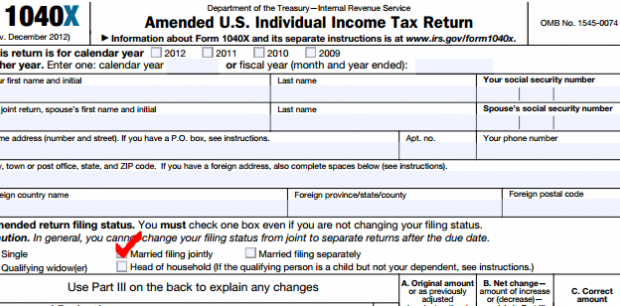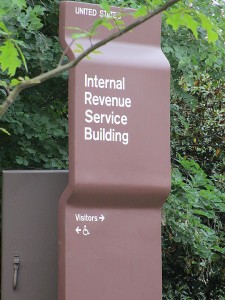The IRS counts all marriages equally
IRS ruling brings certainty and relief to married, same-sex couples with changes that provide for a more uniform application.
The U.S. Department of Treasury and the Internal Revenue Service (IRS) jointly released a ruling on August 29, 2013, that changes how legally married, same-sex couples will be treated for Federal tax purposes. Revenue Ruling 2013-17 (pdf) held that for Federal tax purposes, the IRS will now recognize a “marriage of same-sex individuals that was validly entered into in a state whose laws authorize the marriage of two individuals of the same sex even if the married couple is domiciled in a state that does not recognize the validity of same-sex marriages.“ In other words, a valid same-sex marriage will be recognized in all states for Federal tax purposes, regardless of state of residence marriage laws.
For guidance the IRS looked to the recent Supreme Court decision in United States v. Windsor (pdf), which held the Defense of Marriage Act (DOMA) (pdf) unconstitutional in that “marriage” was defined as meaning only a legal union between a man and a woman as husband and wife. The IRS also rejected DOMA’s narrower interpretation of the word “marriage.” Instead, the IRS broadened its definition of marriage to include same-sex couples in order to promote efficient tax administration.
Anyone who is legally married is married for Federal tax purposes. Now what?
The changes implemented by the Revenue Ruling became effective on September 16, 2013, and will cover income taxes as well as gift and estate taxes. The ruling will encompass any tax-related filing in which marriage is a factor. For example, it will cover filing status, personal and dependency exemptions, standard deductions, contributions to an IRA, employee benefits, claims to the earned income tax credit, and claims to child tax credits. Married same-sex couples will also be able to file refund claims for taxes paid on previously taxed health insurance and fringe benefits provided by the employer that are excluded based on marital status.
Now, when legally married same-sex couples file, they may do so as “married filing jointly” or “married filing separately.” This change will also apply retroactively, meaning that married same-sex couples can file original or amended returns if the relevant statute of limitations has not expired. The statute of limitations for filing a refund claim is generally three years from when the first filing was completed or two years from the date the tax was paid, depending on which one is later. Married same-sex couples can use Form 1040X (pdf) to file a refund claim for income taxes and Form 843 (pdf) for a refund claim for gift or estate taxes.
So what does this mean for married, same-sex couples in North Carolina? Even with Amendment One, domestic partners who are legally married in another state are now considered married for federal tax purposes.
Who is not covered?
While the IRS is recognizing all legal marriages as equal for the purposes of Federal taxation, the ruling also held that certain partnerships are not covered. Civil unions, domestic partnerships, or other similar relationships recognized under state law that are not denominated as a marriage under the laws of that state will not be included in the IRS definition of marriage.
More than administration efficiency, the recent ruling protects the rights of same-sex couples.
The Revenue Ruling reasons that a system that would differentiate between same-sex and opposite-sex married couples would be difficult to administer. The IRS does not collect nor maintain the gender identity of taxpayers; therefore, an implementation of a system that did collect the gender identity of a taxpayer would require the retraining of administrators and revamping of systems. The ruling avoids these complications and achieves uniformity, stability, and efficiency in the application and administration of the Internal Revenue Code.
In addition to administration efficiency, the ruling also protects legally married same-sex couples by doing away with the narrower interpretation of marriage. The narrower interpretation would burden same-sex couples, complicate their filing of federal and state taxes jointly, and raise the cost of healthcare for families by taxing health benefits provided by employers to their employees’ same-sex spouses.
Estate Planning Opportunities.
Some important estate planning opportunities have become available after the Revenue Ruling. Legally married same-sex couples can now take advantage of the unlimited marital deduction under federal gift tax and estate tax laws by revising their estate planning documents. Couples should review their retirement account beneficiary designations and joint and survivor annuity elections to ensure that they remain appropriate. A surviving spouse’s right to roll over a decedent-spouse’s retirement account will now apply to married, same-sex couples. This will allow them the opportunity to also benefit from not being required to take minimum distributions or lump sum distributions earlier than the surviving spouse ordinarily would. Essentially, married, same-sex couples will now have the benefit of naming each other as the beneficiary of retirement accounts in order to defer income tax as long as possible.
Legally married same-sex couples can now also consider replacing individual life insurance policies with survivor policies in order to optimize death benefits as well as splitting gifts between spouses in order to maximize each spouse’s applicable exclusion amounts from either the federal gift tax or estate tax. Some couples also may want to consider moving to a state that recognizes marriages of same-sex couples in order to obtain all of the federal non-tax benefits available to married same-sex couples after the Revenue Ruling.
Clear, coherent tax filing guidance.
Finally, the IRS expects to issue further guidance on issues such as payroll taxes on health insurance and fringe benefits provided to same-sex spouses, as well as tax-favored cafeteria plans and qualified retirement plans and how they treat same-sex spouses.
Treasury Secretary Jacob J. Lew in a press release stated that the Revenue Ruling “provides certainty and clear, coherent tax filing guidance for all legally married same-sex couples nationwide. It provides access to benefits, responsibilities and protections under federal tax law that all Americans deserve.”
U.S. Labor Department also defines “spouse” and “marriage” to include same-sex couples.
In addition to the IRS, the U.S. Department of Labor also announced new guidance interpreting United States v. Windsor. The Employee Benefits Security Administration protects workplace benefits including retirees and their families. The administration oversees around 701,000 private sector retirement plans along with 2.3 million health plans. The U.S. Department of Labor announced that “spouse” and “marriage” in Title I of the Employee Retirement Income Security Act of 1974 and in related department regulations should also be read to include same-sex couples who are legally married in any state or foreign jurisdiction that recognizes such marriages, regardless of where they currently reside.
Assistant Secretary for Employee Benefits Security, Phyllis C. Borzi said, “By providing greater clarity on how the Supreme Court’s decision affects one of the laws we enforce, we are contributing to greater equality and greater protection for America’s working families.”
The Supreme Court increased the rights and privileges available to married, same-sex couples by expanding the definition of marriage and striking down DOMA—for federal purposes. The IRS and Department of Labor have shown that federal agencies have wasted no time in complying with the ruling.








